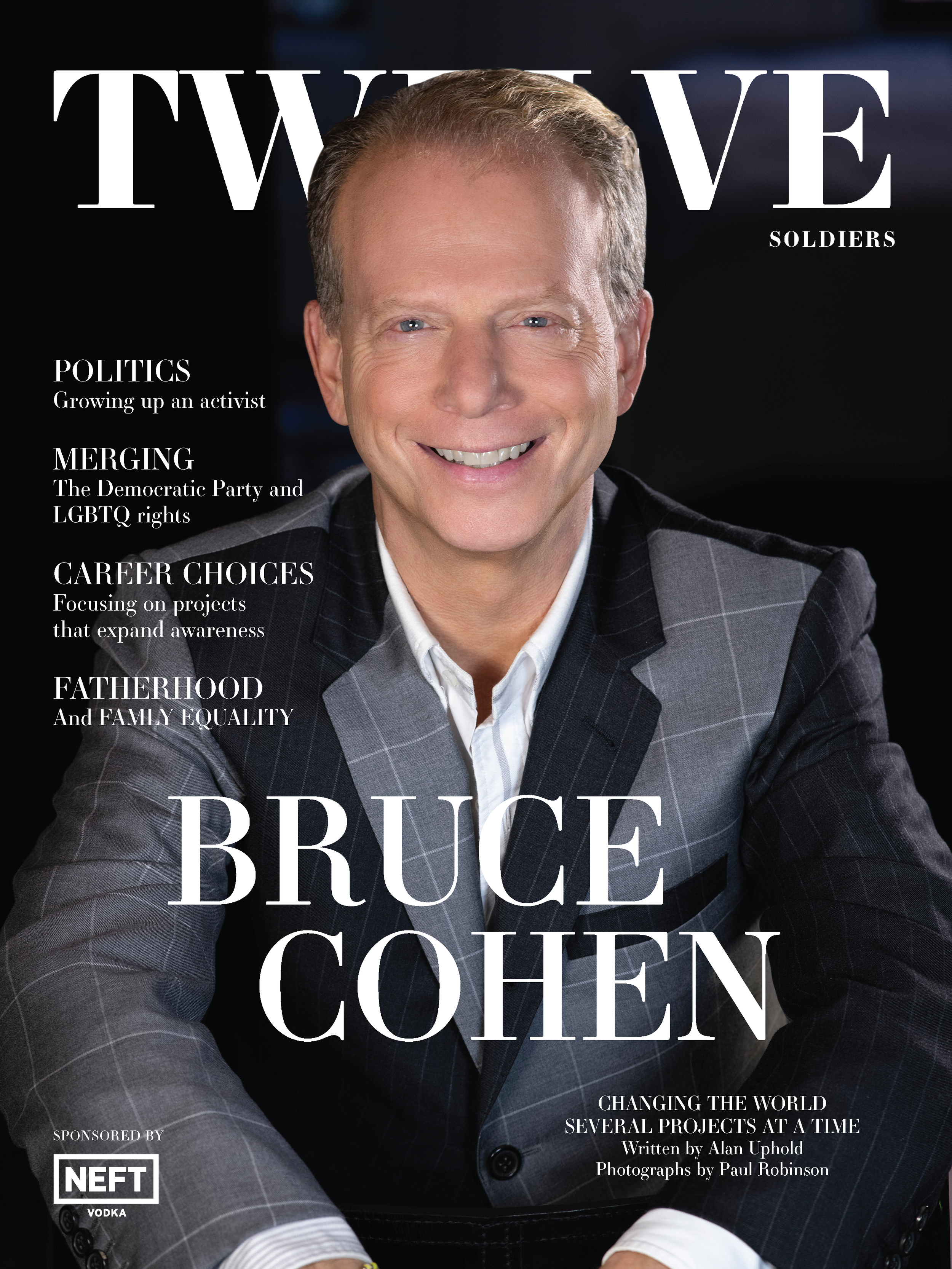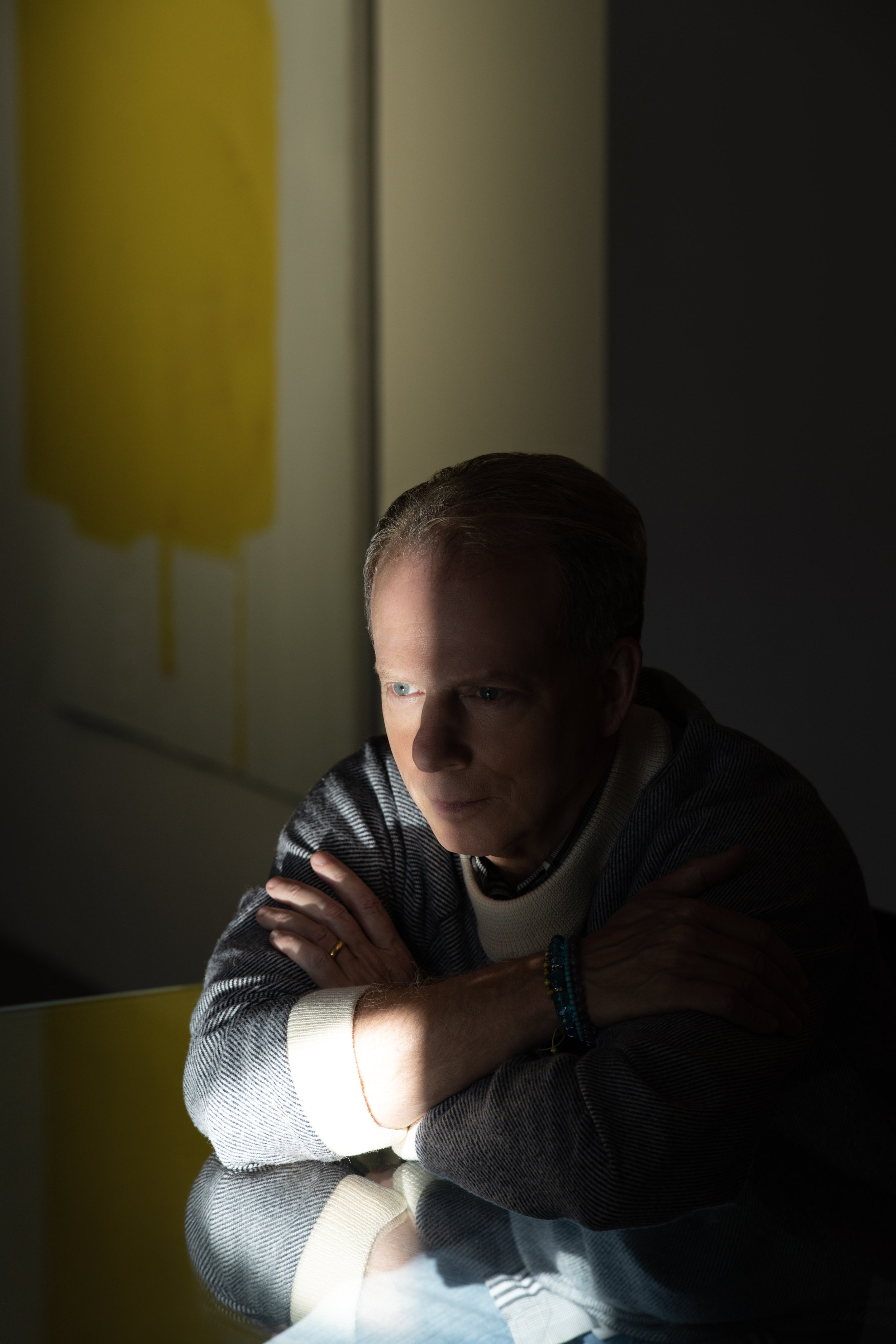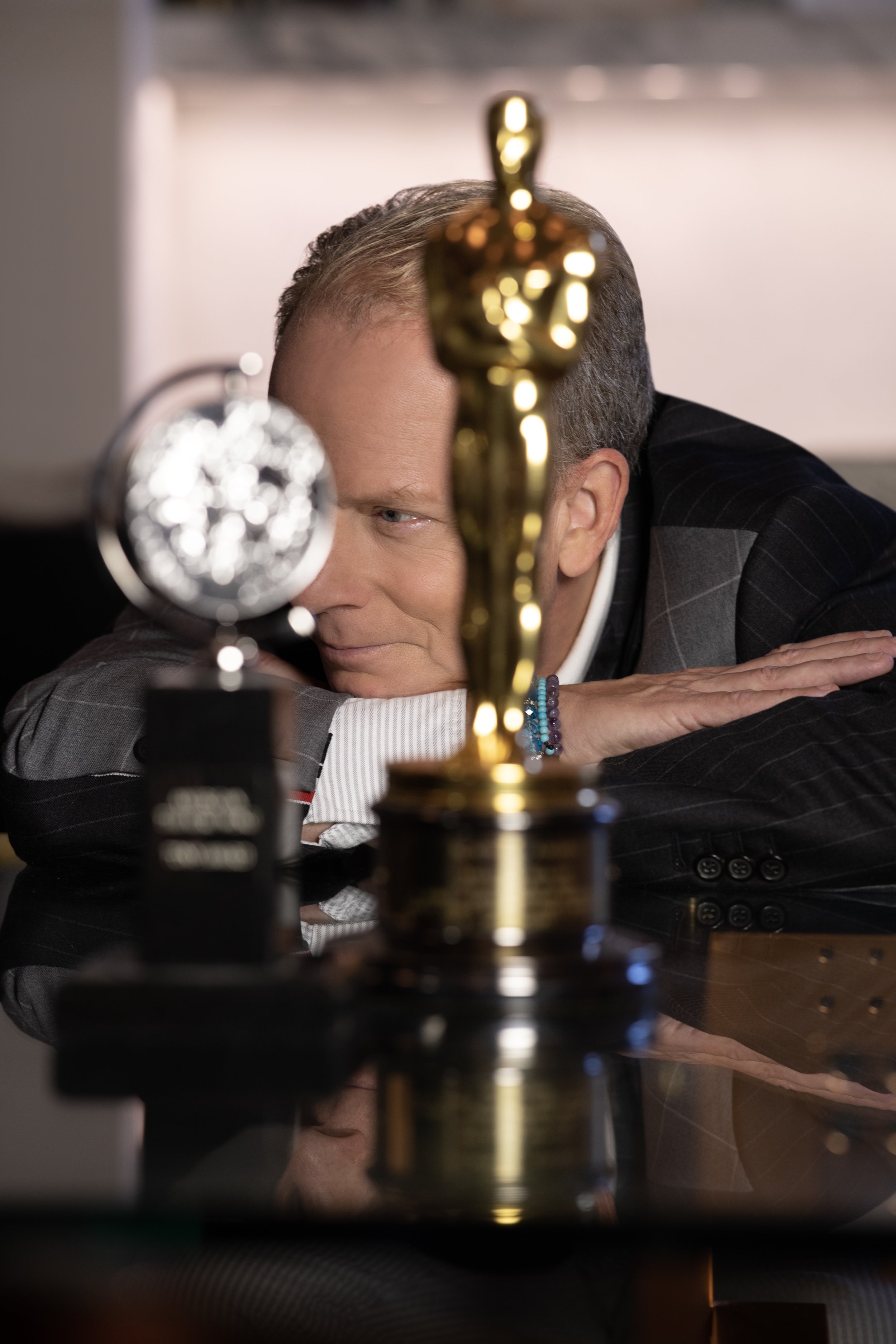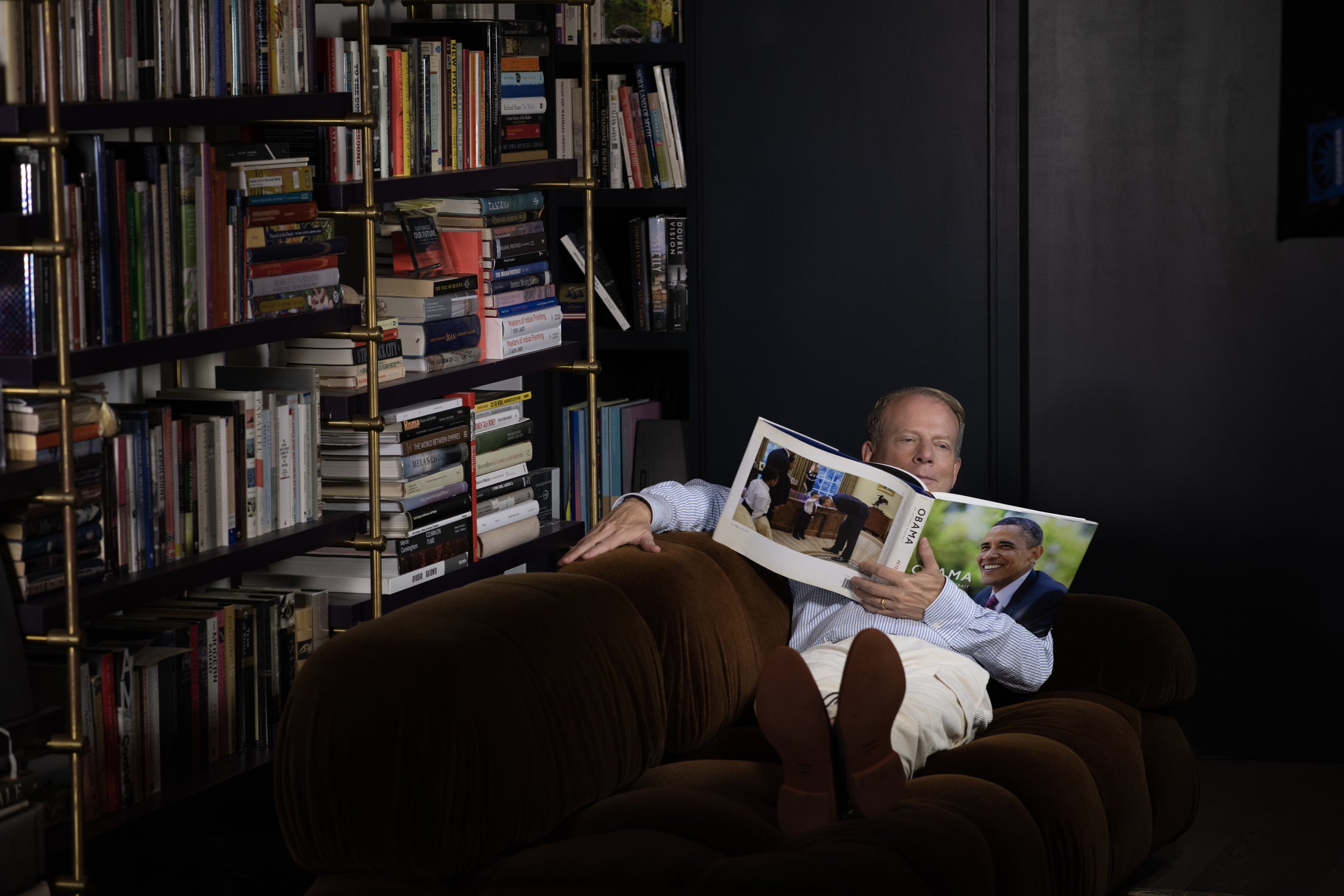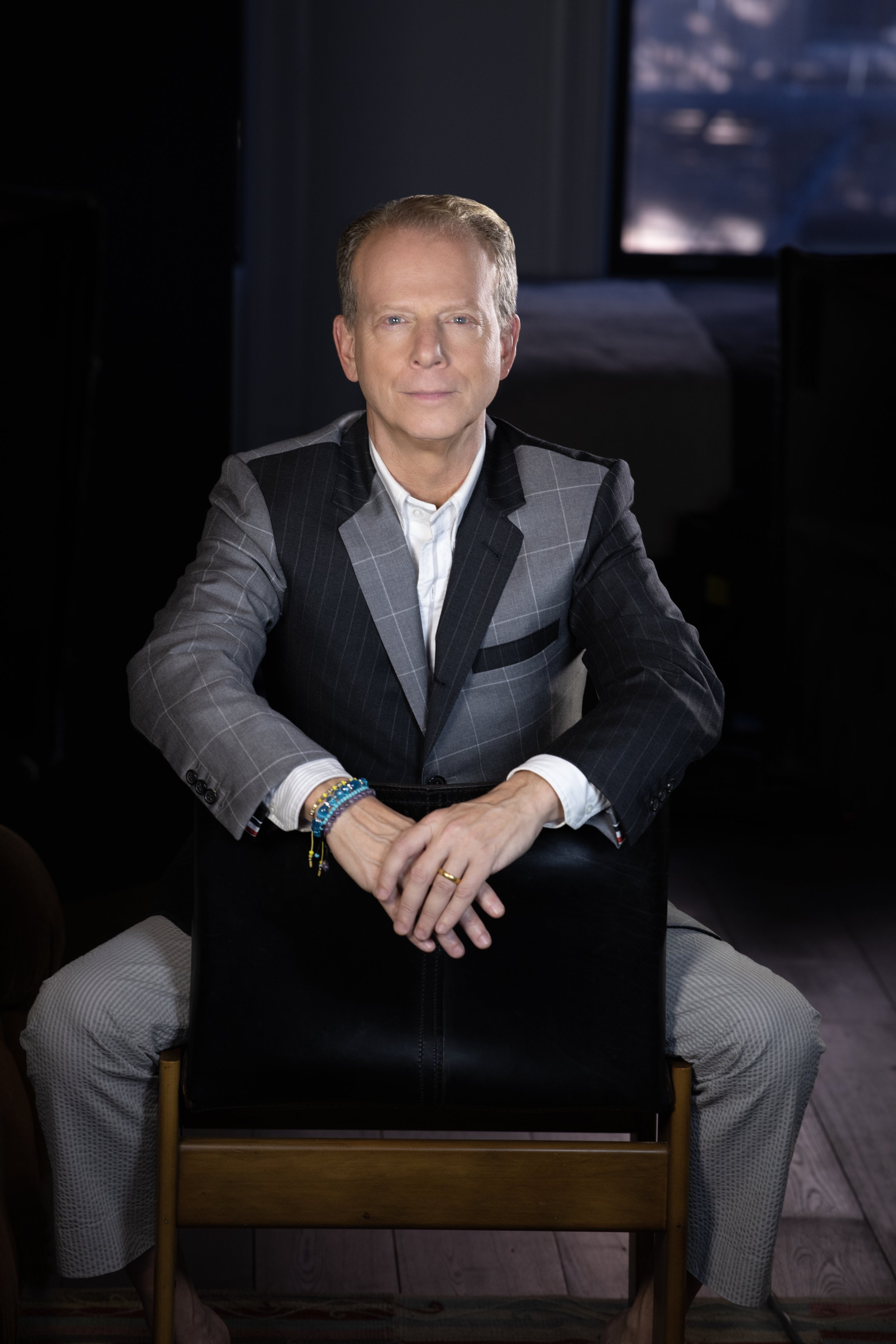BRUCE
COHEN
CHANGING
THE WORLD
SEVERAL PROJECTS AT A TIME
Written by Alan Uphold
Photographs by Paul Robinson
Critically acclaimed Los Angeles photographer, Paul Robinson, has created a 12-part series of photos and articles featuring twelve LGBTQ individuals who have used their notoriety, their celebrity, or their downright chutzbah to affect change in the LGBTQ community.
The series, named “Twelve Soldiers,” will feature Paul’s photographs and a profile of a different social justice warrior each month.
In addition to Paul’s incredible photos of the twelve featured soldiers, his company, NEFT Vodka will donate $1,000 to the charity of choice for each of the featured soldiers.
Bruce Cohen was practically preordained to become a social justice warrior before he even started elementary school.
A self-described political junkie, Cohen grew up in the Fairfax County city of Falls Church, Virginia, a suburb resting in the shadow of the nation’s capital. Cohen admits that he was the product of two parents that were, in his own words, “total lefties.”
Indeed, his father was a union lawyer who would boast about the fact that in the early 1970s he represented the first public school teacher in Maryland to be fired for being gay.
It was here in Fairfax County, Virginia, that Cohen grew up across the street from Democratic party activist, Maryanne Hurt. She immediately recognized that he was a precocious child who, even at the age of four, had a flair for turning on the political charm.
Hurt dispatched an unaccompanied Cohen to go door-to-door to campaign for Alan Magazine who was running for Fairfax County Supervisor. Magazine won his election, and upon hearing that a four-year-old had walked the neighborhoods to advocate for him, he penned a personal thank you note to Cohen.
Of course, who can say for certain whether it was Magazine’s positions on the issues or Bruce’s charming door-to-door appeals that tipped the election.
Either way, Cohen was well on his way to becoming a political force with which to be reckoned.
In the eighth grade, Cohen’s Mom kept him home from school so that he could watch the Watergate Hearings from gavel-to-gavel. She believed that the benefits Bruce could derive from watching the Watergate Hearings would far outweigh anything that he might miss in school.
By the time he reached junior high, politics and leadership were already running through Cohen’s veins. Cohen was elected vice-president and then president of his junior high school and served as
“Dan and I both decided that we wanted to focus on quality
and were not going to go for quantity...the driving ethic was to work
with the best writers, the best directors, the best actors to tell a story.”
president of both his sophomore and junior classes in high school.
By the time he graduated from Yale, he was already skilled at being a political leader and “community organizer.” That’s also the point at which he moved to Hollywood without really knowing where life would take him. As it turned out, life took him down a career path in Hollywood that has had a profound impact on the Democratic Party, on LGBTQ equality, and on many social justice causes that are important to him.
For years he has been a fervent advocate in the struggle for LGBTQ equality while simultaneously continuing his efforts to help elect Democratic candidates—two things that were not always in alignment.
Democrats often came down on the wrong side of LGBTQ politics, according to Cohen. “While the Democratic party was better than the other party, those two passions of mine—Democratic party politics and LGBTQ activism—weren’t always in the same wheelhouse. It’s been one of the great joys of my life to watch how those two have come together.”
Politically, as a prolific fundraiser for the Democratic Party and for Democratic politicians, Cohen has personally contributed to, and has helped raise millions for, the politicians and causes he supports.
On the entertainment side, Cohen’s long list of credits includes award-winning movies like American Beauty, Milk, and Silver Linings Playbook; award-winning TV shows like When We Rise and Pushing Daisies; award-winning plays like Slave Play and The Inheritance; and his latest film, Rustin.
At the age of 38, Cohen and his producing partner, Dan Jinks (who was 37), were two of the youngest producers to ever win an Academy Award for Best Picture for their 1999 film, American Beauty.
Winning so early in their careers meant that the eyes of Hollywood were upon them as the world waited to see what these two young phenoms would do next.
Cohen recalls that several days after the Oscar ceremony, he and Jinks were sitting in their office talking about what they were going to do next.
“Dan and I both decided that we wanted to focus on quality and were not going to go for quantity,” he said. “We weren’t going to go for money, not lean into the box office. That’s not to say that our projects didn’t make money, but the driving ethic was to work with the best writers, the best directors, the best actors to tell a story.”
Cohen’s projects have tackled important issues like LGBTQ equality, mental illness, and civil rights, but he has managed to do so in a way that still entertains audiences.
“If movies suddenly became history lessons, no one would go to see them anymore.”
Indeed, that was one of the many life lessons he took away from working with Steven Spielberg who once told him that the most important thing to do is to entertain people. He told Cohen to never forget that if audience feels like they’re being preached to, they are out the door.
According to Cohen, “For better or worse, one of the most powerful ways to affect change is feature films and dramatic television. Sadly, books, documentaries, newspaper articles, don’t reach the same audience. Nothing reaches an audience and has the potential for change like a movie or TV show.”
As an illustration of this point, Cohen shared a story from the time that he was making the movie, Milk, about openly gay San Francisco Supervisor, Harvey Milk, who fought tirelessly for LGBTQ rights until he was murdered by a fellow supervisor. Milk’s life and legacy have been chronicled in various media,
most notably the award-winning book, The Mayor of Castro Street, by author Randy Shilts, and the Oscar-winning documentary, The Times of Harvey Milk.
Cohen was scouting for locations in San Francisco with Jinks, writer Dustin Lance Black, and director Gus Van Sant when a group of young gay men recognized Van Sant and excitedly approached the group to say hi to him. When the young men asked what they were doing in San Francisco, they said they were planning to shoot a movie about Harvey Milk
The young men asked, “Who’s Harvey Milk?”
Cohen and his team were breathless. He said the hairs on their arms literally stood up. He recalls that he and his group thought, “Holy shit! Here are these out gay teenagers standing in Harvey Milk Plaza at the corner of Castro & Market in San Francisco, and they don’t know who Harvey Milk is!”
It made the four of them resolute on the importance, if not outright necessity, of making their film.
“We realized that if the book hadn’t brought Harvey Milk to national attention, and if the documentary hadn’t brought Harvey Milk to national attention, he’s gonna get lost!”
Spoiler alert, Cohen and Jinks did end up making the film starring Sean Penn as Harvey Milk, and it went on to receive glowing critical acclaim as well as numerous nominations and awards from every Hollywood guild and academy—including two Oscars.
Cohen hopes his most recent project has brought well-deserved renown to another gay rights icon, Bayard Rustin, who was an openly gay African American civil rights leader.
Rustin was the principle architect and organizer of the 1963 March on Washington at which Martin Luther King delivered the most famous oration of his life—his “I Have A Dream” speech.
Prior to the film’s November release on Netflix, Cohen asked people if they knew Rustin’s story. He says even fewer people knew about Bayard Rustin than knew about Harvey Milk.
Given that two of his producing partners on the project were Barack and Michelle Obama, it is no surprise that the film has resulted in much-deserved recognition for Bayard Rustin.
Rustin has received critical acclaim that has resulted in renewed attention for this important civil rights
“It was extraordinary. You don’t get a more satisfying,
more exciting civil activism event in your entire life than to win a Supreme Court case,”
icon, including Colman Domingo’s Best Actor Oscar nomination, as well as Best Actor nominations from the Screen Actors Guild, Golden Globes, BAFTA and Critics Choice, and Best Picture nominations from the NAACP Image Awards and GLAAD.
Reflecting on his decision to make films about these civil rights icons, Cohen said that for him, his experience making Milk was “inextricably linked to Prop 8.”
California’s Proposition 8 was an initiative that added an amendment to the state constitution banning same-sex marriage. It was on the ballot in 2008—the same year that Barack Obama was elected president.
Opponents of Prop. 8 were optimistic that the proposition would fail. They believed that Obama’s popularity in the state would drive progressive voters to the polls and help drag down the initiative. Despite their hopes, they knew that ensuring Prop. 8’s failure would require savvy organizing and a great deal of money.
Cohen stepped up to serve as Los Angeles Finance Co-Chair of the No on 8 campaign. He was one of the organizers of an event which was held at the home of supermarket magnate, Ron Burkle, which was attended by glitterati like Barbra Streisand and Steven Spielberg and featured performances by Melissa Ethridge and Mary J. Blige.
The event raised more than $3.9 million in a single night.
In spite of spending millions of dollars and waging an aggressive advertising and canvassing campaign against Prop. 8, on November 4, 2008, marriage equality supporters were stunned when the measure passed by a margin of 4%.
The reason that Milk and Prop. 8 are linked for Cohen is that almost 30 years to the day, on November 7, 1978, Harvey Milk successfully led a campaign to defeat another anti-LGBTQ initiative, California’s Proposition 6. That measure proposed
that any person engaging in “public homosexual activity” could be banned from public schools. Cohen said that Milk’s organizing skills were sorely needed in struggle to defeat Prop. 8.
Cohen recalls, “The very next day after the election, political consultants Chad Griffin & Kristina Schake were having lunch with their clients Rob & Michele Reiner, and that’s where the idea of taking Prop. 8 to court was born. They reached out to me, and I reached out to Dustin Lance Black (writer of Milk) and Cleve Jones (advisor on Milk and Harvey’s best friend) and the group was formed.”
The group to which Cohen is referring ultimately became the American Foundation for Equal Rights for which Cohen would later serve as president.
The non-profit was responsible for the genius legal strategy of bringing together two lawyers at opposite ends of the political spectrum—legal juggernauts David Boies and Theodore Olsen.
It turned out to be a brilliant idea. Seeing a notoriously liberal lawyer join hands with a notoriously conservative lawyer showed the justice system, and indeed the country, that this was an issue that was based on fairness and equality—plain and simple.
The arguments in favor of keeping Prop. 8 withered away in the face of Boies and Olsen’s arguments against it. They argued and won marriage equality cases before the California Supreme Court and then before the United States Supreme Court.
“It was extraordinary. You don’t get a more satisfying, more exciting civil activism event in your entire life than to win a Supreme Court case,” Cohen said.
Back in the summer of 2008, prior to Prop. 8’s passage, Cohen was one of the lucky California couples who was able to get married, and he wed his husband, Gabe Catone. In 2011, he and Catone added a completely different credit to Cohen’s long list of credits: fatherhood. That’s when he and Catone welcomed their daughter, Ilaria, into their lives.
“Yes, things can seem a bit dark right now, but the light will come back,
and I’m certainly dedicated to fighting with everything that I have to make sure that happens.”
“Prior to becoming a father, everything was about me. The day we brought her home, I was holding her in my arms looking down at her, and I realized that suddenly my world revolved around someone else. But it has been the richest experience you could imagine.”
Standing up not only for his own family, but for all LGBTQ families, has become an important part of Cohen’s activism work.
As part of this 12-article series, NEFT Vodka will be donating $1,000 to the charity of choice for each of the individuals being profiled. Cohen has been active in an organization called Family Equality and has selected them to receive this generous donation. The organization’s mission is to ensure that everyone has the freedom to find, form, and sustain their families by advancing equality for the LGBTQ+ community (www.familyequality.org).
So, does Cohen worry about the world that Ilaria will someday inherit?
“Yes, things can seem a bit dark right now, but the light will come back, and I’m certainly dedicated to fighting with everything that I have to make sure that happens. I mean, that’s why I do all of these things. There’s no point in the activism or the charity event or a single dollar raised if it doesn’t lead to the greater good.”
Cohen has most certainly contributed to the greater good multiple times over.
He has managed to change the world while receiving praise and awards from around the entertainment industry. He has won an Oscar and a Tony and has been nominated for an Emmy. Does he foresee himself becoming that rarest of entertainers who has won an EGOT (Emmy, Grammy, Oscar and Tony)?
He laughed and said, “I would need an Emmy and then could produce an album for a Broadway show or film soundtrack, so I think I still have a chance!”
All of his life’s achievements seem to have culminated in his latest assignment. Cohen has been appointed co-chair of President Biden’s Committee on the Arts and the Humanities alongside Lady Gaga. With this appointment, Cohen’s lifelong passions for politics and the arts have come together in the most fitting way.
Cohen said, “What the universe has taught me is that a profound way to impact the world is by impacting the individual. It’s about the anecdotal personal stories that people tell me about the affect that a film had or a play had or a song in an event that I produced had.”
He said that many people came up to him in tears after Silver Linings Playbook to thank the filmmakers for bringing attention to the mental health issues that many people struggle with every day.
“We knew from the number of people who came up to us that we were having an impact on many people,” he recalls.
“If we impact one person, if we save one life, that’s enough.”
FAMILY EQUALITY
Family Equality exists to create a world where everyone can experience the unconditional love, safety, and belonging of family.
Our mission is to ensure that everyone has the freedom to find, form, and sustain their families by advancing equality for the LGBTQ+ community.
We will be outspoken changemakers, creating an equitable LGBTQ+ family narrative, through advocacy, community, and education

